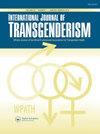Systematic review of the psychometric properties of transphobia scales
Q1 Social Sciences
引用次数: 33
Abstract
ABSTRACT Introduction: Prejudice and discrimination against transgender individuals (i.e., transphobia) is pervasive and has been shown to have pernicious effects on the physical (e.g., substance abuse and other self-harm behaviors) and psychological (e.g., depression and suicidal ideation) well-being of those targeted. Aims: To date, a review of the psychometric properties of scales assessing transphobia has not been conducted; this gap compromises researchers' ability to make informed measurement decisions. Methods: In the current study, 61 articles that contained 83 scales were identified, and their adherence to best practices in psychometric testing was evaluated. Results: Most of the transphobia scales included in the current review did not provide sufficient information about item generation and refinement, scale dimensionality, scale score reliability, or validity. Each scale was entered into a table and was ranked on the basis of its total score. A score of 1 was issued for each psychometric feature that adhered to best practice guidelines, with total scores ranging from 0 to 5 (i.e., higher scores denote greater psychometric soundness). Discussion: Properties of the reviewed scales are summarized and recommendations are made for future transphobia scale development and validation. The measures that emerged as possessing the highest scores and, subsequently, the greatest utility are identified.跨性别恐惧症量表心理测量特性的系统回顾
摘要引言:对跨性别者的偏见和歧视(即跨性别恐惧症)是普遍存在的,并且已被证明对这些人的身体(如药物滥用和其他自残行为)和心理(如抑郁和自杀意念)健康有有害的影响。目的:迄今为止,尚未对评估跨性别恐惧症的量表的心理测量特性进行审查;这一差距损害了研究人员做出明智的测量决策的能力。方法:在目前的研究中,鉴定了包含83个量表的61篇文章,并评估了它们对心理测量测试最佳实践的依从性。结果:本研究纳入的大多数跨性别恐惧症量表在项目生成和细化、量表维度、量表得分信度或效度方面没有提供足够的信息。每个量表都被输入到一个表格中,并根据其总分进行排名。每个符合最佳实践指南的心理测量特征的得分为1分,总分范围为0到5分(即得分越高,心理测量的可靠性越高)。讨论:总结了所评量表的特性,并对未来跨性别恐惧症量表的开发和验证提出了建议。确定了具有最高分数并随后具有最大效用的度量。
本文章由计算机程序翻译,如有差异,请以英文原文为准。
求助全文
约1分钟内获得全文
求助全文
来源期刊

International Journal of Transgenderism
Social Sciences-Gender Studies
CiteScore
5.10
自引率
0.00%
发文量
0
期刊介绍:
International Journal of Transgenderism, together with its partner organization the World Professional Association for Transgender Health (WPATH), offers an international, multidisciplinary scholarly forum for publication in the field of transgender health in its broadest sense for academics, practitioners, policy makers, and the general population.
The journal welcomes contributions from a range of disciplines, such as:
Endocrinology
Surgery
Obstetrics and Gynaecology
Psychiatry
Psychology
Speech and language therapy
Sexual medicine
Sexology
Family therapy
Public health
Sociology
Counselling
Law
Medical ethics.
 求助内容:
求助内容: 应助结果提醒方式:
应助结果提醒方式:


